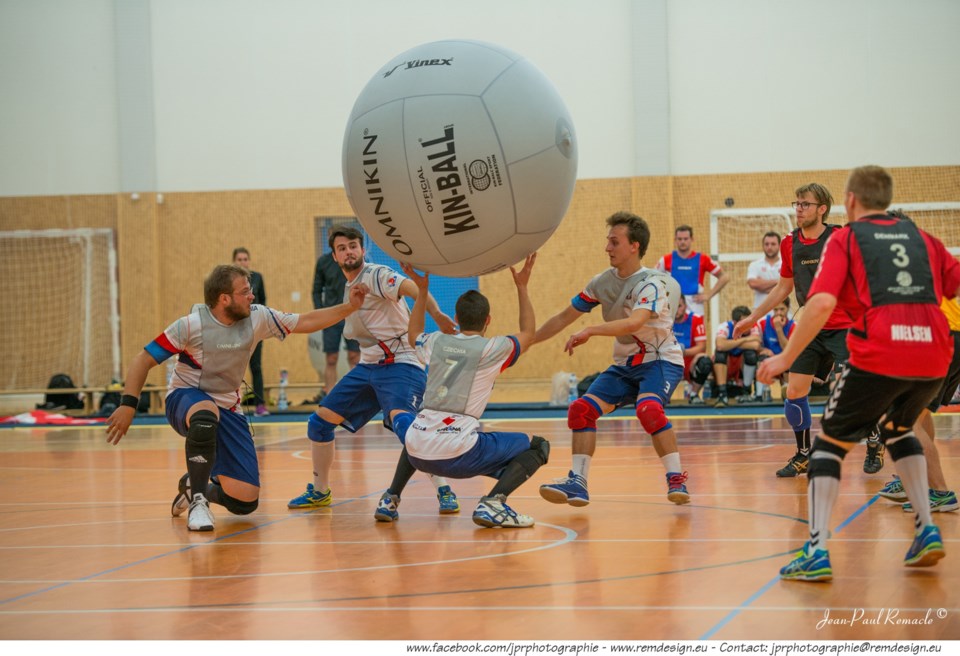YORKTON - When it comes to sport there are far more than most are aware – myself included even though I tend to enjoy reaching out to cover as broad a range as I can.
So, it has been in the back of my mind for some time to do something on Kin-Ball, a game of particular interest because of its origin.
Kin-Ball, is a team sport created in Quebec back in 1986 by physical education professor Mario Demers, which I suppose is not all that different from James Naismith creating basketball as an educator decades earlier.
Certainly Kin-Ball is different from other sports, if not unique.
To start it is played with three teams, which certainly isn’t typical, but as noted in a recent Sports This Week article other three-team sports exist, Omega Ball being the one covered.
The game is also played with a monstrous ball -- four feet (1,22 m) in diameter and weighing two pounds (1 kg).
But, what makes it very different is that it is designed to be a cooperative sport.
The idea is a team member – one of four per side -- basically catches a ball, and the two other members join the catcher forming essentially a triangle to hold the ball up for the fourth to then hit.
The hitter designates which of the two opponent teams must defend and hits the ball.
Kin-Ball is played on a court no larger than 20 metres by 20 metres.
Paolo Zambito, Executive director with Kin-Ball Canada said the way the game keeps everyone involved on every play is a key for the game.
“It’s the only cooperative organized sport in the world,” he said, adding that is an aspect he believes make the game stand out once it is tried.
Since all players are involved in catching, setting and hitting it’s not unusual to see young students interested in playing Kin-Ball where they might not generally be into sports.
“Everybody’s always in the action,” he said, adding one ‘great’ athlete can’t simply takeover play in Kin-Ball. “ . . It’s something that’s amazing with the sport.”
While the game has been around for nearly 40-years now, it is still quite regional in Canada, with Quebec not surprisingly its hotspot as that is where it was created.
Zambito said there are pockets of play in other areas of course, for example in Halifax.
“A teacher fell in love with the game and became sort of an ambassador for the game,” he said.
Certainly crystal balling for the future Zambito said he dreams of growth across Canada, adding a sport needs to be played in multiple provinces to be eligible for Sport Canada funding.
“The hardest part is making people aware of the sport. We have to start from scratch,” said Zambito.
Interestingly, as regional as Kin-Ball remains in Canada, the country is still a powerhouse on the international scene.
Canada’s women’s team has not lost a World Championship yet, the men having lost only one back in 2015, said Zambito.
While Canada dominates, Kin-Ball is drawing interest globally, with 10-14 countries normally involved in World Championships, said Zambito, adding countries such as Japan, France and Czechia are traditionally very competitive.
“We’re not doing the Olympics very soon,” offered Zambito, but in the next five to 10 years he said he be happy “. . . to double the number of teams at the world level – maybe 25-30 at the international level at world championships.”

